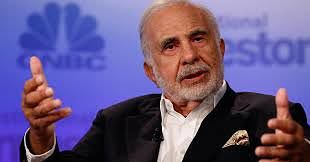Icahn’s Letter Against the CI-ESRX Merger is Self-Serving

There’s something fishy about Carl Icahn’s open letter to Cigna
Let’s examine the situation.
First, Icahn just opened up a long position in Cigna, as reported on August 1. He did this in order to own enough of the company to justify his objection to the merger. Icahn likely has already profited from the purchase. CI stock traded at $179 before the news broke and is now at $189. He claims CI is worth $250 per share.
However, and this is the key point, Icahn is also short ESRX. It obviously stands to reason that if he can succeed in killing the merger, Express Scripts stock will fall.
As Cigna said in a statement, “Mr. Icahn… has made a speculative financial bet against the transaction in the hopes that he can create a gain at the expense of Cigna and Express Scripts shareholders. Mr. Icahn’s opposition is misguided and short-sighted.” The fact that Icahn apparently never contacted to Cigna to speak directly to management about his alleged concerns supports this reasoning.
After all, if Icahn really thinks it’s a bad deal, why not just go to the Board. He’s Carl Icahn. I think they’ll take a meeting.
But no, he’s using the power of his name and the media, instead. As my kids say, this is “SUS”.
Just on these two points alone, it’s obvious that the legendary investor is using his name to influence the prices of these stocks to his benefit. However, Icahn also has interests in other firms that could be harmed by the merger. He owns a position in pharmaceutical provider Allergan
A merger between a health insurer and a pharmacy benefit manager (PBM), especially when combined with other similar mergers like CVS
Icahn’s investments are in a publicly-traded vehicle, Icahn Enterprises L.P. The stock lost about half its value between 2014 and 2016. It has recovered and Icahn likely wants that recovery to continue, hence his transparent jawboning of the stocks.
As for Icahn’s arguments in the letter, they don’t hold water. He suggests that Cigna “pursue a multi-year partnership with an existing PBM provider, potentially Express Scripts”. Icahn obviously sees the necessity of such relationships, but wrongly believes that a merger is a bad idea. It’s a great idea, and that’s why other companies have already done so. As mentioned, it makes for enhanced economics for the insurer-PBM entity.
Icahn’s misguided core argument against the merger is that the rebate system is going to be killed by regulatory action. Rebates are only a piece of the revenue pie, the rest coming from beneficiary co-pays, management fees paid by the health plan, and incentive and performance payments paid by drug makers. As it is, most PBMs pass on 90% of manufacturer rebates, and PBMs only end up with $2 out of every $100 spent.
It also seems a bit disingenuous for Icahn to crow over rebates for brand name drugs resulting in higher drug prices. For starters, that simply isn’t true. And he owns shares in pharmaceutical companies which benefit from higher drug prices! So his “concern” over lowering prices for consumers comes off as hollow.
Also left unexplored is the fact that Icahn is a special advisor to President Trump on economic matters. As many have wondered, does Icahn’s honeyed words whispered in Trump’s ear result in monetary benefit to Icahn?
The whole thing smells fishy. Icahn was never one for subtlety, but in this case, his motives seem entirely transparent.
Lawrence Meyers is the CEO of PDL Capital, a specialty lender focusing on consumer finance and is the Manager of The Liberty Portfolio at www.thelibertyportfolio.com. He does not own any stock mentioned. He has 23 years’ experience in the stock market, and has written more than 2,000 articles on investing. Lawrence Meyers can be reached at [email protected].



